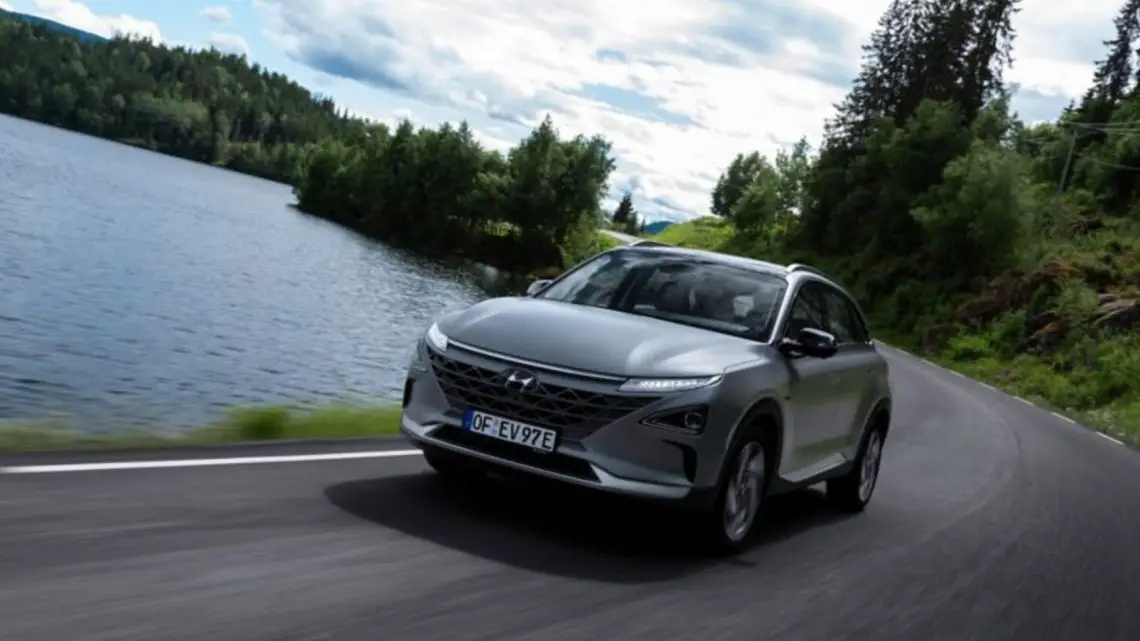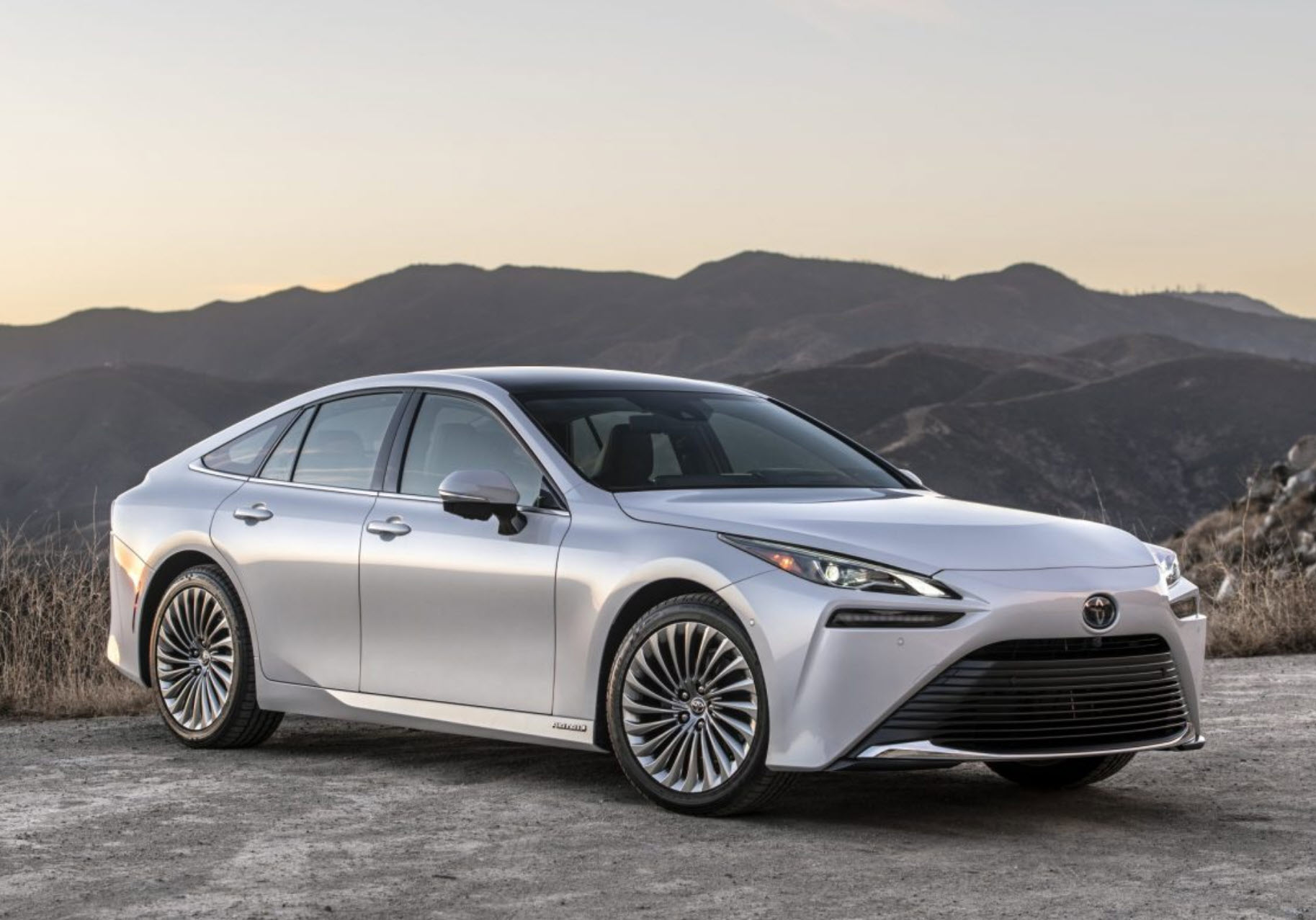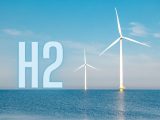
Weak sales in hydrogen fuel cell cars chip away at Toyota and Hyundai push
June 16, 2023The automakers have been standing firm behind their efforts to bring H2 to passenger vehicles.
Toyota and Hyundai have been keeping up their efforts to develop, manufacture and sell hydrogen fuel cell cars, even as battery electrics take off in the passenger vehicle market.
Unfortunately, weak sales continue to indicate that consumers are still wary of adopting H2 tech.
In 2022, hydrogen fuel cell cars comprised only 0.02 percent of all passenger vehicle sales globally. This, according to a report recently published by Bloomberg NEF. Long-term projections regarding the potential success of any vehicle are difficult until reaching 0.1 percent – about 80,000 vehicles, but clearly H2 has a long way to go before reaching that point.
On paper, H2 has a substantial number of advantages to offer drivers. Hydrogen usually refuels faster and offers a longer range – two of the primary challenges associated with battery electric vehicles. However, without a hydrogen refueling infrastructure in place, it makes it difficult for consumers to see any real potential for owning the vehicles. After all, they can’t use them if there isn’t anywhere for them to fuel up.
With a rapidly growing charging infrastructure already in place – and the potential for many homeowners to recharge their vehicles from their own driveways – it’s not difficult to see why battery electric vehicles are often viewed as the most readily available zero-emission passenger car.
Toyota and Hyundai continue to see the possibilities in hydrogen fuel cell cars.
“We are not able to make a long-term outlook for passenger FCVs while sales are so low, show limited momentum, and are highly concentrated in a few markets and models,” said BNEF Bloomberg in the report. Even before the figures become available for long-term forecasting, Toyota and Hyundai continue to see H2 as a practical zero-emission passenger vehicle option for the future. The Toyota Mirai and the Hyundai Nexo represented nearly all H2-powered passenger vehicle sales last year, of which there were 15,391 in 2022.
Falling Sales
 Globally, sales of hydrogen fuel cell cars fell from 2021 to 2022. This was most noticeable in Japan, where H2 passenger vehicle sales tanked from 2,440 in 2021 to a measly 884 in 2022.
Globally, sales of hydrogen fuel cell cars fell from 2021 to 2022. This was most noticeable in Japan, where H2 passenger vehicle sales tanked from 2,440 in 2021 to a measly 884 in 2022.
In Conclusion…
In conclusion, despite the firm commitment of automakers like Toyota and Hyundai to develop and promote hydrogen fuel cell cars, consumer adoption remains slow due to the lack of widespread infrastructure and the rapid growth of battery electric vehicles. While hydrogen technology offers certain advantages such as faster refueling times, smaller batteries and longer range, these benefits are overshadowed by the convenience and accessibility of electric charging networks. Although hydrogen fuel cell cars still have potential as a zero-emission alternative, they will need to overcome significant hurdles in terms of infrastructure and consumer perception before they can truly compete with their battery-powered counterparts. Until then, it is crucial for automakers to continue investing in research and development to improve hydrogen technology and work with governments and industry partners to expand the necessary infrastructure to support its growth. Only through sustained efforts can hydrogen fuel cell vehicles achieve a meaningful share of the global passenger vehicle market.



 With over 15 years of reporting hydrogen news, we are your premier source for the latest updates and insights in hydrogen and renewable energy.
With over 15 years of reporting hydrogen news, we are your premier source for the latest updates and insights in hydrogen and renewable energy.
Someone should amplify the metaphor of hydrogen as a “chemical BATTERY” — electricity (and heat, if you use a nuke to generate it) dissociates water into H2 and O2; the latter is released (or bottled as needed) while the former is a carbon-free way to store electrical energy.
We are interested in H2 cars to personal transportation.
If car makers want us to buy the H2 cars they need to copy Musk.
Roll out H2 filling stations.
The car companies have the funds to do so.
I agree with John. No point in having hydrogen vehicles for sale without the fueling infrastructure. That is why EV’s took a while to catch on. EV still have other issues as well. Even still, with hydrogen cars there are only 6 stations in all of Canada to refuel at! Ridiculous. Since subsidies for the oil industry are declining, government should redirect funds and work with the car industry towards having hydrogen fueling stations more ubiquitous, then interest can rise re the H2 vehicles. Also better public understanding of how they work is important. With the right marketing, they could really take off here in Canada, but again it’s the refueling issue that is the biggest obstacle at present.
Canadian Provinces of Québec and the Labrador Coast of Newfoundland are in a very privileged situation as harsh winter conditions impose more reservoir, dam and generating capacity for rather short periods. This means that cosiderable amounts of excess water has to be spilled during Spring thaw, punctual off peak peak periods and maintaining the essential water flow in rivers. According to my recent search with A.I. (Bing) refering to annual and punctual day by day statistic published by Hydro-Québec, a yearly average 40% of the total hydraulic generating capacity goes as waste water over the spillways. Stangely enough, nobody seams to pay any attention to that loss which could be transformed as 100% Green Hydrogen. JAMB
Hydrogen-fuel cell-battery vehicles (FCEVs) are a more energy efficient choice than pure battery when a large amount of energy stored on board is required for heavy loads or long distances, as batteries get increasingly heavy, take up a lot of space and cost more energy to haul around. We should concentrate first on the infrastructure to refuel HGVs, buses and other heavy vehicles such as refuse collection carts which only require 350 bar supply, as the need to be able to refuel them is far greater than for cars; with a 350 bar hydrogen refuelling infrastructure in place, 700 bar filling stations for cars can be added later.
Without a simultansous push for H2 fuel they will never see an increase in sales! We need to point out to Power Companies that H2 is the best way to store power, and that POWDERED H2 Fuel (“First-of-its-kind Electriq Powder manufacturing plant to be built in Amsterdam” – Hydrogen Fuel News – March 3, 2023 2 – By Angie Bergenson) AND the opportunities presented by ELECTROLYSIS OF SEAWATER (“Chinese researchers successfully achieve hydrogen production with seawater” – HFN December 26, 2022 18 – By John Max) AND (“Researchers discover easier way to produce clean hydrogen fuel from seawater” – HFN November 8, 2022 2 – By Erin Kilgore).
The Green Hydrogen Industry need to find the wherewithal to lobby as intensely as the Fossil Fuels Industry.
Their presence at COP 28 is FUNDAMENTAL to make the Hydrogen Economy take off.
We need a fueling infrastructure or the car just sits like the one in my driveway. Love the car, but there is almost no fuel. Shell just closed our closest station.
Hydrogen vehicles are not ready for prime time yet. When the hydrogen infrastructure nears completion, they’ll be gaining ground. They’ll also be much improved, less costly, and green hydrogen will be much cheaper in a decade. They’ll be lighter than EVs, have more range, be easy to refuel, and perform better in temperature extremes. Whether personal hydrogen ICEVs will do well against FCEVs remains to be seen.
Even those super pro-BEV advocates will acknowledge that owning a BEV without home access/overnight charging is a game of inconvenience. *Slowly*, public policymakers are beginning to understand that per cent households (40-45% or greater) without home charging access or low potential for it are a fixed ceiling and invisible/invincible threat (without proactive innovative and costly public policy solutions) to widespread BEV adoption.
Enter hydrogen fuel cell cars which refueling patterns model those of unquestionably successful century + old gas stations for ICE cars. Hydrogen fuel cell cars/refueling station net work must be poised and ready to step in as the BEV home access charging deficit ceiling begins to stifle widespread BEV adoption.
Maybe cars can piggyback on the seemingly to be available hydrogen fuel network for trucks and buses. Here in the San Francisco Bay Area cars are welcome to fuel up at the AC Transit bus depot which has a growing New Flyer hydrogen fuel cell bus fleet.
And of course, there must be a far greater variety and choices of fuel cell cars and SUVs to chose from. (Not just
Mirai and Nexus.
Recently NBC News with Lester Holt and Public Television showed two similar news stories of electric cars traveling from California to the East coast. Both cars never made it! No place to charge, charging equipment was damaged, parts stolen from the charging equipment. Both cars got no further east than Nevada or Arizona. In other words, California has a lot of charging stations but you will not get to the east coast. Both cars were transported by tow trucks to a charging station and then transported back to California.
I recently traveled to Taft in southern California. I asked if a charging station was in this town. The answer from the Chevron station operator said it was vandalized about 6 months ago and not repaired. Maybe H2 is a better way. I hope so….
Even super pro-BEV advocates will acknowledge that owning a BEV without home access/overnight charging is a game of inconvenience. *Slowly*, public policymakers are beginning to understand that the percent of households (40-45% or greater) without home charging access or low potential for it are a fixed ceiling and invisible/invincible threat (without proactive innovative and costly public policy solutions) to widespread BEV adoption. Enter hydrogen fuel cell cars whose refueling patterns model those of unquestionably successful century-old gas stations for ICE cars. Hydrogen fuel cell cars/refueling station networks must be poised and ready to step in as the BEV home access charging deficit ceiling begins to stifle widespread BEV adoption. Maybe cars can piggyback on the hydrogen fuel network for trucks and buses. Here, in the San Francisco Bay Area, cars are welcome to fuel up at the AC Transit bus depot, which has a growing New Flyer hydrogen fuel cell bus fleet. And, of course, there must be a far greater variety and choices of fuel-cell cars and SUVs. (Not just Mirai and Nexus).
Even those super pro-BEV advocates will acknowledge that owning a BEV without home access/overnight charging is a game of inconvenience. *Slowly*, public policymakers are beginning to understand that the percent of households (40-45% or greater) without home charging access or low potential for it are a fixed ceiling and invisible/invincible threat (without proactive innovative and costly public policy solutions) to widespread BEV adoption. Enter hydrogen fuel cell cars whose refueling patterns model those of unquestionably successful century-old gas stations for ICE cars. Hydrogen fuel cell cars/refueling station networks must be poised and ready to step in as the BEV home access charging deficit ceiling begins to stifle widespread BEV adoption. Maybe cars can piggyback on the hydrogen fuel network for trucks and buses. I live in the San Francisco Bay Area. Here, hydrogen cars are welcome to fuel up at the AC Transit bus depot, which has a growing New Flyer hydrogen fuel cell bus fleet. And, of course, there must be a far greater variety and choices of fuel-cell cars and SUVs. (Not just Mirai and Nexo).